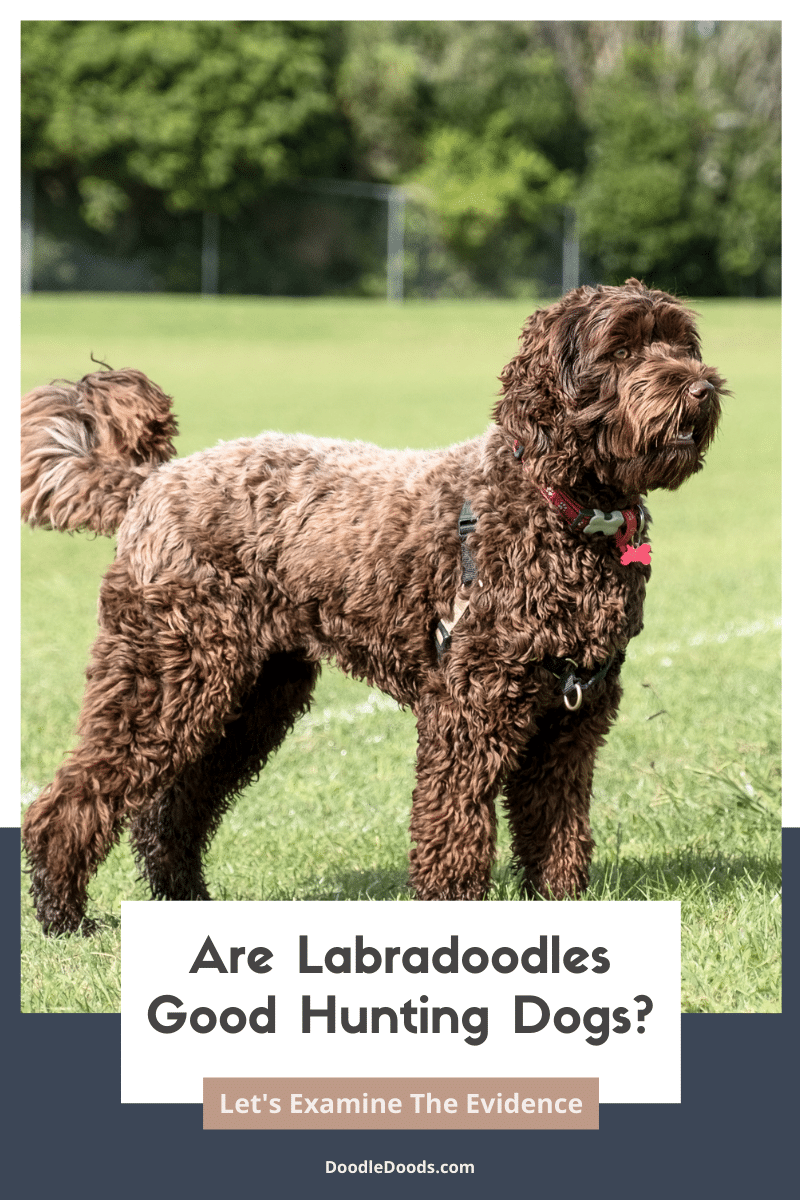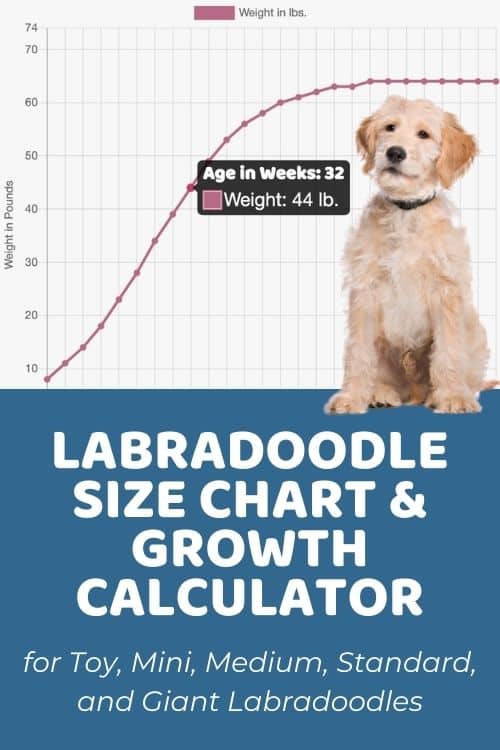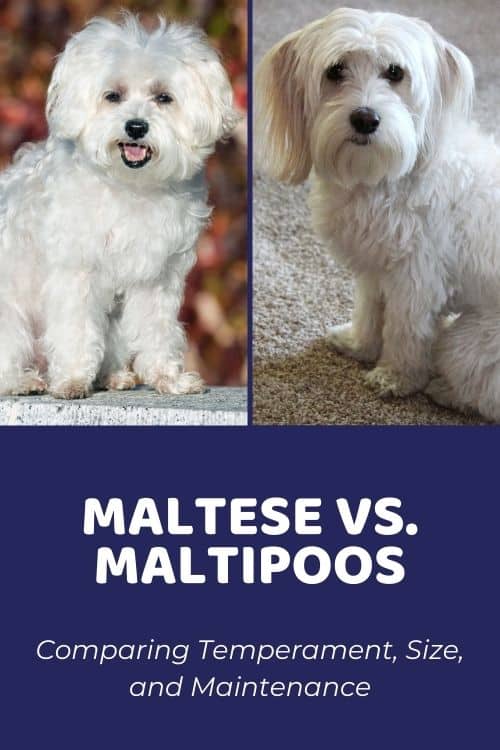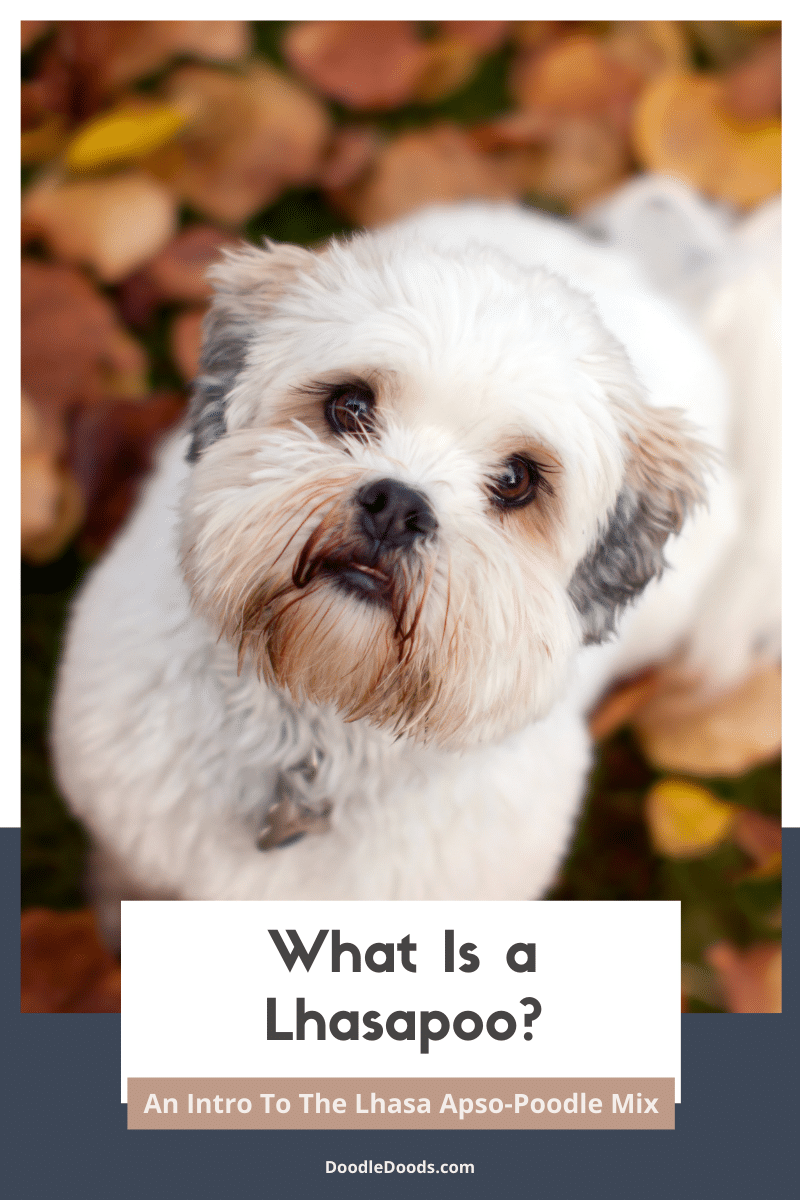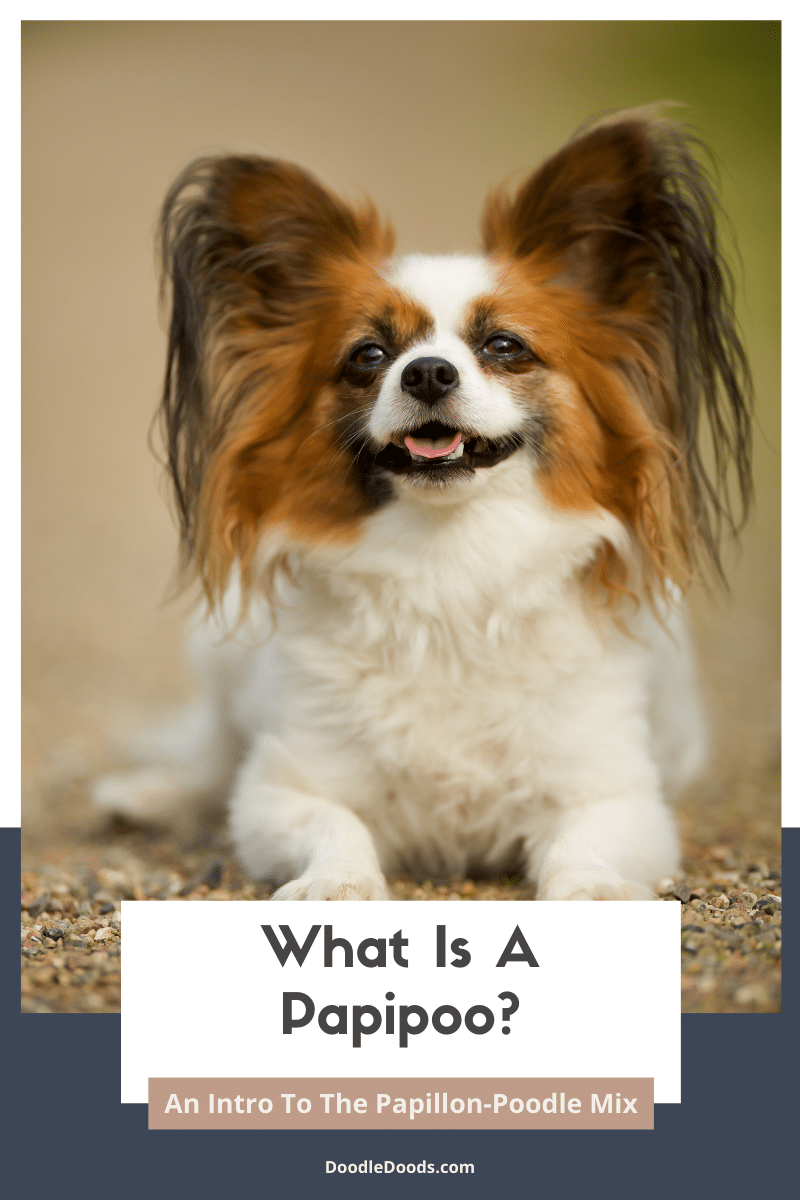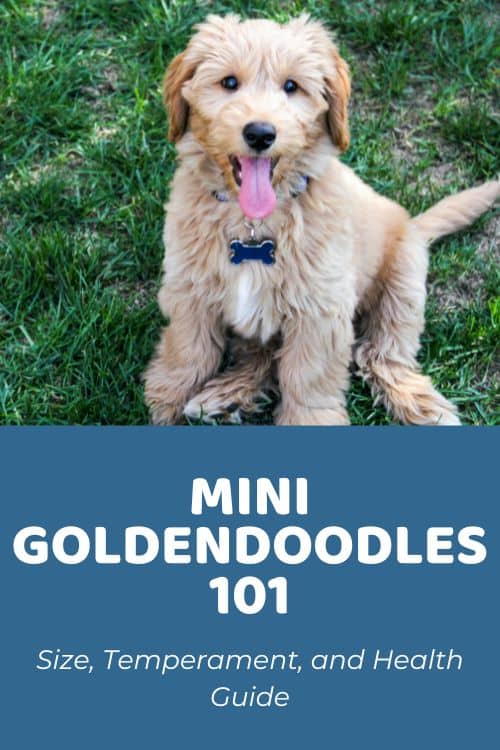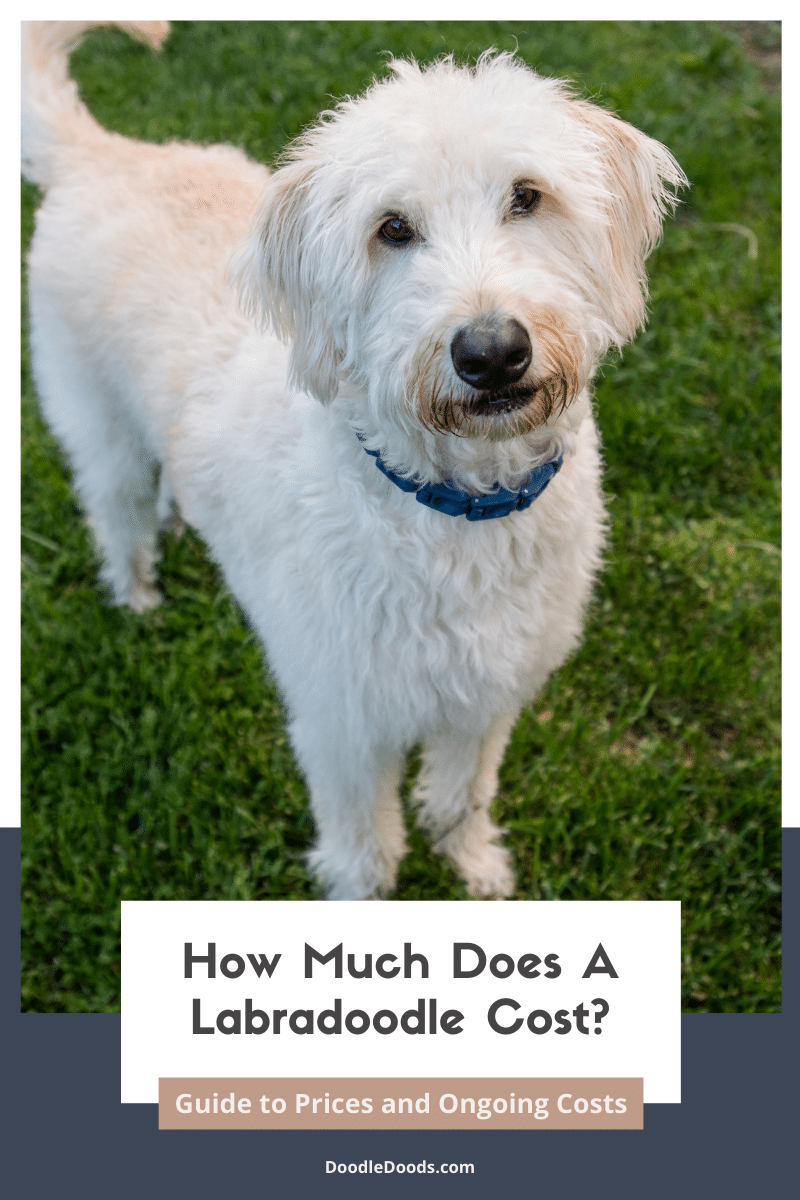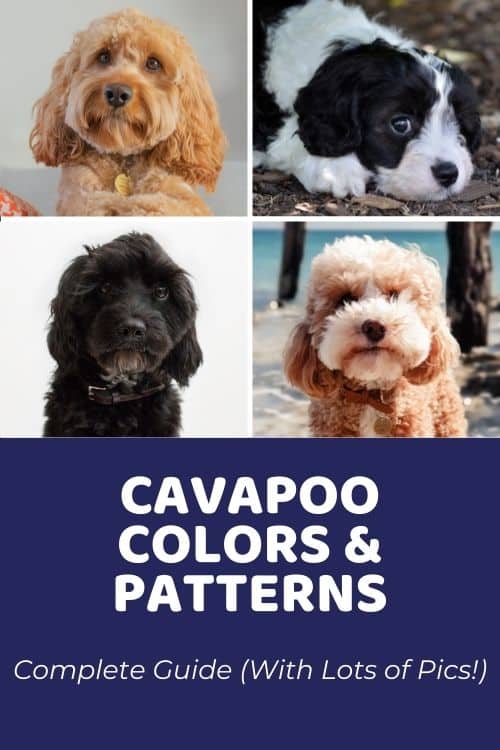Chances are you’re already familiar with the delightful bundle of energy that is the Labradoodle. A strategic cross between the loving and loyal Labrador Retriever and the low-shed, super-smart Poodle, these dogs are racing ahead in the popularity stakes. But while Labradoodles undoubtedly make excellent family pets, where do they sit in terms of other common canine pursuits? If you’ve found yourself here, you’re likely after an answer to the question, “Are Labradoodles good hunting dogs?” Well, let’s take a look:
Table of Contents
- Are Labradoodles Good Hunting Dogs?
- What Makes Labradoodles Good Hunting Dogs?
- Which Hunting Labradoodle Is Better: American or English?
- Training Your Labradoodle for Hunting
- Frequently Asked Questions About Hunting With Labradoodles
- Final Thoughts
Are Labradoodles Good Hunting Dogs?
Labradoodles can be excellent hunting dogs. What else would you expect from combing two incredible working dog breeds such as the Labrador Retriever and the Poodle? Each of these hounds is not just any old working dog; they are dedicated retrievers. In short, both the Labradoodle’s parent pups are essentially purpose-bred hunting dogs.
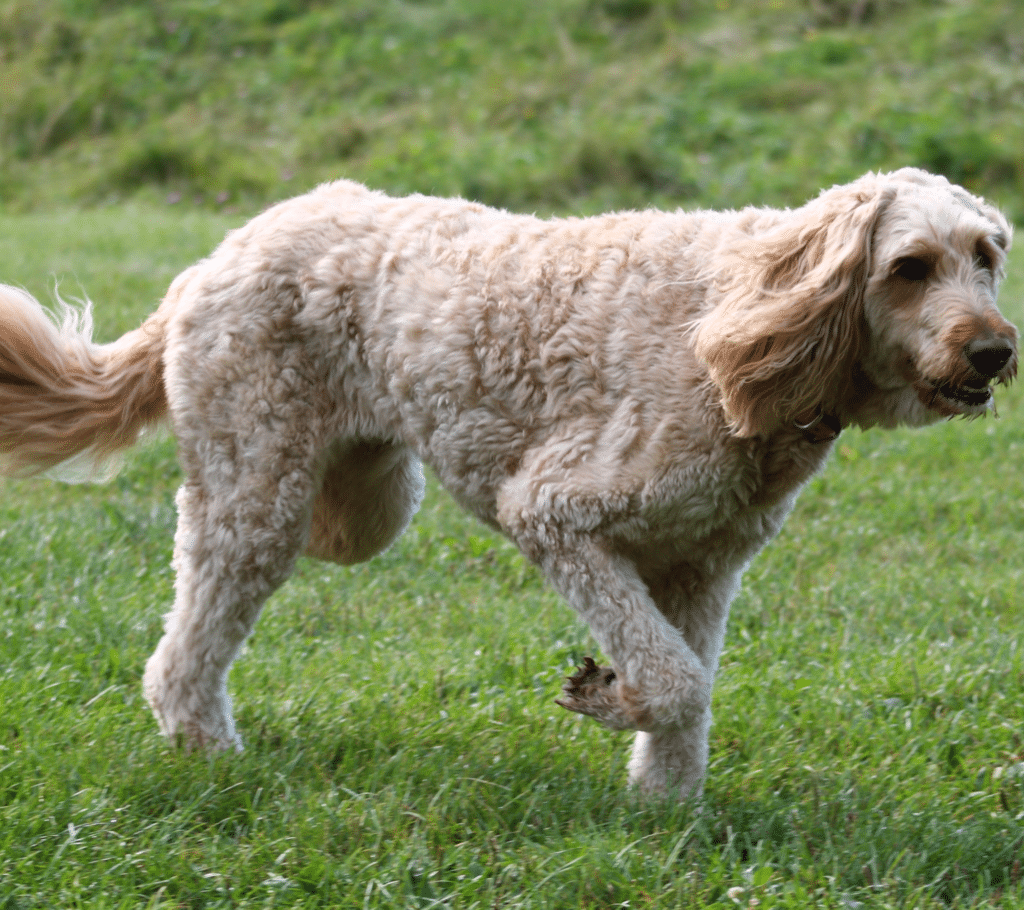
Labrador Retrievers
Hailing from the island of Newfoundland, Labrador Retrievers once earned their keep by working alongside fishermen hauling nets, fetching ropes, and collecting fish. As such, they are excellent working dogs that love being in the water – even the chilly Atlantic! The breed was later shipped to England, where they were further bred to be gun dogs for hunter owners, retrieving waterfowl, and other game. They can also be used for pointing and flushing with great success.
Poodles
Conversely, Poodles look like they would feel much more at home in a show ring than out in the wilds of the woodlands. However, these dogs, too, have a stellar hunting-dog history. Originating in Germany, where they take their name from the local word pudel, meaning ‘to splash in water,’ Poodles are (as you might now expect) excellent water dogs. They made their name hunting and retrieving waterfowl in the icy lakes and rivers of European forests.
However, while their excellent heritage makes the Labradoodle naturally gifted in hunting and retrieving, it’s the breeding that makes all the difference. Breeders can use their knowledge of how genetics play out to boost the best of what makes a Labradoodle either a great working animal or a wonderful family pet. While there is some deal of overlap, there are also many key distinctions.
What Makes Labradoodles Good Hunting Dogs?
So, what are the qualities of a Labradoodle that make for a champion hunting hound? If you’re searching for a puppy to train up, here’s what to be aware of when checking out breeding facilities:
Robust Health
No matter what kind of dog you’re looking for, you want them to be healthy. Happily, Doodles, as hybrid dogs, benefit from a “vigor” that is more difficult to find in pedigrees. What exactly does this mean? Well, the more common conditions that plague canines are hereditary, meaning they are passed on from the parent pups. As many of these are breed-specific, with two different dogs, there is less chance of puppies inheriting genes for them from both parents and so less chance of them being expressed. So, in opting for a Labradoodle over a Labrador or Poodle, you’re already doing well in the good-health respect.
Beyond that, it’s important to pay close attention to exactly what kind of breeder you’re dealing with. Sadly these days, profit chasers take full advantage of the fact that people are willing to pay good money for Labradoodles. These “puppy mills” and “backyard breeders” either prioritize money or simply have no idea about favorable breeding. If you purchase a puppy from either of these, the best-case scenario is that they don’t have the right qualities to be a hunting dog. The worst case is that they are simply unhealthy dogs. It pays to do your research.
Hunting Instincts
If you’re kind of new to the whole Doodle thing, you may have even been aware that there is more than one type of Labradoodle. Well, the first thing to know about these dogs is that they come in three distinct sizes: Standard, Medium, and Mini. This is because Poodles come in three distinct sizes: Standard, Miniature, and Toy.
You may think of the smaller of the Poodles as being an unlikely pairing for the medium-sized Labrador Retriever. However, expert breeders playing the long game have created varying Labradoodle generations. Smaller Labradoodles are backcrossed with little Poodles to create apartment-sized companion pets for those that love Labrador Retrievers but simply don’t have the space for one.
While certainly cute and excellent family dogs, these diminutive Labradoodles aren’t necessarily the best hunters. The smaller Poodle ancestors were ‘designed’ (so to speak) to be companion animals above all else. Successive breeding of these dogs selected for the qualities that make them excel at this – lapdog quirks – which are often far removed from hunting ones, e.g., smelling and tracking abilities.
Strength, Speed & Stamina
Hunting dogs need to be skilled and tireless athletes. They may well have to run for miles to track prey. For this reason, they need to be in excellent shape and have the right kind of body and muscle condition for this demanding work. Depending on the nature of the hunting, they usually also need to be comfortable with and adept in and around water.
As we’ve touched on above, some Labradoodles are more likely to fit the bill than others in this respect. The kind of breeding that changed the role of dogs would naturally have had an impact on their physique, too, not only altering their size but their muscle tone and the whole way their body works. This can be seen in the difference between American and English Labradoodles, as outlined below.
High Trainability
When it comes to working animals, you want a dog that is eager to please and obedient but also smart enough to grasp what’s asked of them. A hunting dog that runs off at the wrong moment doesn’t come back when you call or decides to chow down on what you’ve just shot down will obviously be of no use to you at all. Loyal, cooperative breeds (just like the Labrador Retriever) make the best hunting companions, but the instincts do have to be there too.
Above that, hunting dogs need to be highly disciplined and more naturally open to the concept of hard work – this goes along with their higher-than-canine-average level of intelligence. When this is the case, it makes training that much easier. A good hunting pup knows how to follow commands but can also work under their own steam in the right circumstances, such as understanding knowing where to go be and prioritize when it comes to the chase.
Which Hunting Labradoodle Is Better: American or English?
While most people are aware that the Poodle comes in distinct sizes, what many tend not to know is that there are also different types of Labrador Retriever. Perhaps the biggest distinction is between the American and English varieties. These dogs differ both in terms of their physical makeup and appearance and also their key characteristics.
English Labs, on the whole, tend to be smaller in height (21.5 to 22.5 inches) but stockier in build than their American cousins (21.5 to 24.5 inches). The English Labs are wider and have fuller chests, thicker necks, more prominent foreheads, and shorter legs. They are much the same in color and coat type, although the American Lab’s can be a little thinner and less suited to truly chilly conditions.
With regard to personality, American Labs have more energy and excitability. In contrast, English ones can be a bit more laid back and goofy fun (although it should be noted that Labrador Retrievers as a breed are naturally higher energy than most other dogs). Overall, differences in character relate much to the fact that English Labs are more show dogs and American ones are the working dogs and thus the better hunters of the two.
Training Your Labradoodle for Hunting
As a hunting dog, your Dood will not only need basic obedience training as a solid foundation on which to build but will also require retrieving training. Early commands like “sit,” “come,” “stay,” and “heel” will set them up well for what comes next. These are essential as you want to be sure that your pal will do what you ask of them at all times. The good news is that both Labrador Retrievers and Poodles are highly trainable, which means your Labradoodle will be too. The greatest difficulty you will have with these dogs is getting and holding their attention. Young Labradoodles tend to be very bouncy and excitable.
Once you’ve mastered that, you’ll need to get your pet accustomed to loud noises – particularly gunshots – which might otherwise spook them through desensitization techniques. Get them used to flushing out and locating game by training them to run in a zigzag pattern before you, thus covering more ground. Have them practice retrieving game by stimulating hunting scenarios and regularly practice all these skills to ensure your mutt is fully prepared before heading out for real. The American Kennel Club (AKC) offers some good tips for each of these.
Frequently Asked Questions About Hunting With Labradoodles
Many Doodles excel at various aspects of hunting. Their individual strengths and weaknesses stem from their parent breeds. While the Poodle retrieving gene can be pretty strong in Doodles of all kinds, you also need to factor in the other parent dog. As Labrador Retrievers are also strong hunting dogs, so too are Labradoodles.
Labradoodles have a pretty variable prey drive. So whether or not your puppy will have this instinct that makes for stronger hunting dog will depend on their parent pups and the genes they have inherited. Certain types of Labrador (American) and Poodle (Standard) have much more of a desire to give chase than others.
Labradoodles’ hair shouldn’t have too much of an impact on their hunting abilities. However, the fact that these dogs typically inherit the Poodle single-layered coat rather than the Lab’s double-layered one might make them a little more vulnerable to the elements. You may consider using a coat to protect them in more extreme conditions.
Labradoodles are neither aggressive nor dangerous dogs by nature. Much of the time, they simply don’t have it in them to be like this. Both Labrador Retrievers and Poodles are highly sociable. This typically shines through in their offspring. That being said, certain environmental factors can play a role in making a dog more or less aggressive.
Despite being hybrids, Labradoodles these days often come with a price tag that rivals pedigree pups. This is to do with their popularity as pets as much as the amount of work that goes into breeding healthy animals. Depending on a number of factors, you might expect to pay somewhere between $2,000 and $4,000 for one of these dogs.
Final Thoughts
If you’re looking for a low-shed “hypoallergenic” hunting dog, whether for reasons of allergies or convenience, chances are you’ve, at the very least, considered the Labradoodle. With an excellent hunting pedigree derived from two famous retriever breeds, it makes sense that the Labradoodle would excel at the sport just as their parent pups do.
So are Labradoodles good hunting dogs? Well, yes and no…
Just be aware that there is much variation in these dogs based on how they are bred and from what kind of dogs (Labrador Retriever and Poodle… Labradoodle and Poodle etc.) can make them better or worse suited to the role. That’s why it’s good to chat with the breeder about their breeding dogs and the kinds of qualities they are specifically looking to bring out in their puppies.
Need help with training?

Use our discount code: DOODLEDOODS at checkout for an instant 25% off of BAXTER & BELLA, The Online Puppy School – an incredible value on their lifetime membership!
Learn More About BAXTER & BELLA
